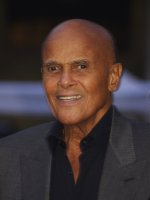Hope Clarke est une Actrice Américaine née le 23 mars 1941 à Washington (Etats-Unis)

Hope Clarke (born March 23, 1941) is an African-American actress, dancer, vocalist, choreographer, and director. She performed as principal dancer with the Katherine Dunham Company and the Alvin Ailey American Dance Theater, 1960s; actress on stage, film, and television, 1970s–1980s; choreographer and director, 1980s--. Clarke served on the Tony Awards Nominating Committee for the 2011–12 Broadway season.
On Broadway, Clarke, who was also raised in New York City, appeared in West Side Story (1960), Hallelujah, Baby! (1967), Don't Bother Me, I Can't Cope (1972), and Grind (1975), and choreographed Jelly's Last Jam (1992), for which she was nominated for a Tony and Drama Desk Award, and Caroline, or Change (2004). Clarke was also cast as Tia Mowry's grandmother in Seventeen Again.
Clarke made history in 1995 when she became the first African American, as well as the first African-American woman, to direct and choreograph a major staging of the opera-musical Porgy and Bess. Clarke's production of the George Gershwin classic was staged in celebration of the work's 60h anniversary, and it toured not only major American cities but Japan and Europe as well. Clarke drew critical acclaim for her commitment to staging the show as a monument to African-American community and pride, giving a more hopeful, positive aura to a story that has been criticized for its stereotypes. As for the director herself, the success of Porgy and Bess is just the latest accolade in a long career devoted to dance and drama.
Early life and career
A native of Washington, D.C., Clarke grew up in just the sort of community she sought to portray in Porgy and Bess. Segregation was still a harsh fact of life during her childhood. She recalled, for instance, how people shopped through mail-order catalogues in order to purchase clothes offered in stores where they were not welcome. "The black community, as I remember it, was very closely knit," Clarke said in the San Francisco Examiner: "Before the fabric of this society was torn by racism and lack of education, we all took care of each other. We all watched each other's children."
In 1960, the still-teenaged Clarke landed a role in the original touring cast of West Side Story, a musical play about rival big city gangs. Following West Side Story, Clarke served as a principal dancer in two noted African-American dance troupes: the Katherine Dunham Company and the Alvin Ailey American Dance Theater. She was particularly prominent in the Alvin Ailey company and sometimes danced in partnership with Ailey himself. Clarke told Essence magazine that her years as a professional dancer helped her to prepare for the next stages in her career: "The discipline I learned in dance carried over into acting and directing," she said.
1970s acting works
After leaving the Alvin Ailey group in the 1970s, Clarke moved into acting. Her most notable feature film performance was in A Piece of the Action (1977), starring comedian/actor Bill Cosby and Oscar-winning actor/director Sidney Poitier. She also appeared in guest roles on numerous television shows, including The Jeffersons, The Ropers, Hill Street Blues, Three's Company, and As the World Turns. Her Broadway credits include Don't Bother Me I Can't Cope, Purlie, and Hallelujah Baby. She also appeared in the critically acclaimed NBC-TV miniseries King (1978), which was based upon the life and ministry of the slain civil rights leader Dr. Martin Luther King, Jr..
Choreography work in the 1970s
When not busy acting, Clarke was often called in to choreograph various stage and television shows. She discovered that she enjoyed the challenge of choreography and, after years as a dancer, was eminently qualified. Besides, she joked in Essence, "I had bills to pay."
Clarke found ample opportunities to develop her choreographic skills and was rarely without a project either in America or abroad. She worked for the New York City-based Opera Ebony, helping to produce Porgy and Bess in such unlikely venues as Brazil and Finland. She earned a Tony Award nomination for choreography for her work in the 1992 Broadway hit Jelly's Last Jam. Over time, Clarke's choreographic talents were directed to projects as diverse as Dorothy Rudd Moore's Freedom and Wolfgang Amadeus Mozart's Cosi Fan Tutte. All of these efforts helped to bring Clarke to the attention of opera and musical theater executives. One of them was David Gockley, general director of the Houston Grand Opera. Gockley had decided to create a whole new touring production of Porgy and Bess, and wanted an African-American director for the project.
Clarke reportedly thought that the idea was splendid. "I've worked through the ranks, and I was ready for this," she recalled in the Minneapolis Star Tribune. Elsewhere, in the San Diego Union-Tribune, she spoke to the contributions she could make to the play as an African American and a woman.
Recalls Clarke of the plans for the Porgy & Bess production:
"As a director, I guess I bring in the female sensibilities," she said. "Since I'm also an actress, I've really tried to develop the characterizations so that the performers don't do a little singing here, and some acting there. And coming from a black perspective, I know how we think, how we feel, what we do. I understand the little things. That makes a difference."
Porgy and Bess (1995) Houston/Dallas Opera production
Porgy and Bess was written by a white composer, George Gershwin, for an all-black cast. The story, set in a fictitious Charleston, South Carolina neighborhood called Catfish Row, revolves around a crippled beggar named Porgy, a sensuous woman named Bess, and two troublemakers, Crown and Sporting Life. Though Gershwin's score has always been highly popular, especially the ballad "Summertime", the characters and setting have drawn criticism for portraying African Americans in stereotypical ways. For example, Porgy begs for money, Bess takes lovers, Sporting Life sells drugs, and Crown is a murderer.
Although Clarke knew that she could not tamper with the essential plot and characterizations in the play, she still, nevertheless had several ideas about how to present the residents of Catfish Row in a more favorable light. She conceived her production of Porgy and Bess as a celebration of the lives of Charleston-based Gullahs, an African-American community believed to be Angolan in origin.
Critic Kenneth Herman noted in the Los Angeles Times, "Clarke ... fleshed out the opera's Gullah context, using that culture's integrity to compensate for some of the lead characters' moral defects. She ... also made certain the cast knows how to pronounce Gullah dialect, which the opera's libretto employs."
Clarke was well aware that she was making history both by serving as director of a large-scale production and by her artistic decisions about the show. She told the Los Angeles Times: "I want African Americans who come to see the opera to be proud that an African American is directing ... and to recognize the people on stage. I wanted to draw a community which we could find today: It could be any poor community, but one with pride." She expanded upon this philosophy in Opera News: "In my production, everybody works. Everybody has some type of job. Just because you are poor doesn't mean you have to be slovenly or ignorant."
Clarke's staging of Porgy and Bess toured several major American cities, including San Diego, Los Angeles, San Francisco, Houston, and Minneapolis. It also played engagements in Japan and at Italy's famed La Scala opera house in Milan. Clarke received a Tony Award for her work on Porgy and Bess and has since kept a full schedule in New York City and elsewhere, choreographing various plays and musicals. Through her successes, she is paving the way for other talented artists. "Blacks and women have been locked out of directing major productions for too long," she asserted in Essence: "It's time for us not only to tell our stories but to direct them.
Source : Wikidata
Hope Clarke

- Infos
- Photos
- Meilleurs films
- Famille
- Personnages
- Récompenses
Biographie
Stage careerOn Broadway, Clarke, who was also raised in New York City, appeared in West Side Story (1960), Hallelujah, Baby! (1967), Don't Bother Me, I Can't Cope (1972), and Grind (1975), and choreographed Jelly's Last Jam (1992), for which she was nominated for a Tony and Drama Desk Award, and Caroline, or Change (2004). Clarke was also cast as Tia Mowry's grandmother in Seventeen Again.
Clarke made history in 1995 when she became the first African American, as well as the first African-American woman, to direct and choreograph a major staging of the opera-musical Porgy and Bess. Clarke's production of the George Gershwin classic was staged in celebration of the work's 60h anniversary, and it toured not only major American cities but Japan and Europe as well. Clarke drew critical acclaim for her commitment to staging the show as a monument to African-American community and pride, giving a more hopeful, positive aura to a story that has been criticized for its stereotypes. As for the director herself, the success of Porgy and Bess is just the latest accolade in a long career devoted to dance and drama.
Early life and career
A native of Washington, D.C., Clarke grew up in just the sort of community she sought to portray in Porgy and Bess. Segregation was still a harsh fact of life during her childhood. She recalled, for instance, how people shopped through mail-order catalogues in order to purchase clothes offered in stores where they were not welcome. "The black community, as I remember it, was very closely knit," Clarke said in the San Francisco Examiner: "Before the fabric of this society was torn by racism and lack of education, we all took care of each other. We all watched each other's children."
In 1960, the still-teenaged Clarke landed a role in the original touring cast of West Side Story, a musical play about rival big city gangs. Following West Side Story, Clarke served as a principal dancer in two noted African-American dance troupes: the Katherine Dunham Company and the Alvin Ailey American Dance Theater. She was particularly prominent in the Alvin Ailey company and sometimes danced in partnership with Ailey himself. Clarke told Essence magazine that her years as a professional dancer helped her to prepare for the next stages in her career: "The discipline I learned in dance carried over into acting and directing," she said.
1970s acting works
After leaving the Alvin Ailey group in the 1970s, Clarke moved into acting. Her most notable feature film performance was in A Piece of the Action (1977), starring comedian/actor Bill Cosby and Oscar-winning actor/director Sidney Poitier. She also appeared in guest roles on numerous television shows, including The Jeffersons, The Ropers, Hill Street Blues, Three's Company, and As the World Turns. Her Broadway credits include Don't Bother Me I Can't Cope, Purlie, and Hallelujah Baby. She also appeared in the critically acclaimed NBC-TV miniseries King (1978), which was based upon the life and ministry of the slain civil rights leader Dr. Martin Luther King, Jr..
Choreography work in the 1970s
When not busy acting, Clarke was often called in to choreograph various stage and television shows. She discovered that she enjoyed the challenge of choreography and, after years as a dancer, was eminently qualified. Besides, she joked in Essence, "I had bills to pay."
Clarke found ample opportunities to develop her choreographic skills and was rarely without a project either in America or abroad. She worked for the New York City-based Opera Ebony, helping to produce Porgy and Bess in such unlikely venues as Brazil and Finland. She earned a Tony Award nomination for choreography for her work in the 1992 Broadway hit Jelly's Last Jam. Over time, Clarke's choreographic talents were directed to projects as diverse as Dorothy Rudd Moore's Freedom and Wolfgang Amadeus Mozart's Cosi Fan Tutte. All of these efforts helped to bring Clarke to the attention of opera and musical theater executives. One of them was David Gockley, general director of the Houston Grand Opera. Gockley had decided to create a whole new touring production of Porgy and Bess, and wanted an African-American director for the project.
Clarke reportedly thought that the idea was splendid. "I've worked through the ranks, and I was ready for this," she recalled in the Minneapolis Star Tribune. Elsewhere, in the San Diego Union-Tribune, she spoke to the contributions she could make to the play as an African American and a woman.
Recalls Clarke of the plans for the Porgy & Bess production:
"As a director, I guess I bring in the female sensibilities," she said. "Since I'm also an actress, I've really tried to develop the characterizations so that the performers don't do a little singing here, and some acting there. And coming from a black perspective, I know how we think, how we feel, what we do. I understand the little things. That makes a difference."
Porgy and Bess (1995) Houston/Dallas Opera production
Porgy and Bess was written by a white composer, George Gershwin, for an all-black cast. The story, set in a fictitious Charleston, South Carolina neighborhood called Catfish Row, revolves around a crippled beggar named Porgy, a sensuous woman named Bess, and two troublemakers, Crown and Sporting Life. Though Gershwin's score has always been highly popular, especially the ballad "Summertime", the characters and setting have drawn criticism for portraying African Americans in stereotypical ways. For example, Porgy begs for money, Bess takes lovers, Sporting Life sells drugs, and Crown is a murderer.
Although Clarke knew that she could not tamper with the essential plot and characterizations in the play, she still, nevertheless had several ideas about how to present the residents of Catfish Row in a more favorable light. She conceived her production of Porgy and Bess as a celebration of the lives of Charleston-based Gullahs, an African-American community believed to be Angolan in origin.
Critic Kenneth Herman noted in the Los Angeles Times, "Clarke ... fleshed out the opera's Gullah context, using that culture's integrity to compensate for some of the lead characters' moral defects. She ... also made certain the cast knows how to pronounce Gullah dialect, which the opera's libretto employs."
Clarke was well aware that she was making history both by serving as director of a large-scale production and by her artistic decisions about the show. She told the Los Angeles Times: "I want African Americans who come to see the opera to be proud that an African American is directing ... and to recognize the people on stage. I wanted to draw a community which we could find today: It could be any poor community, but one with pride." She expanded upon this philosophy in Opera News: "In my production, everybody works. Everybody has some type of job. Just because you are poor doesn't mean you have to be slovenly or ignorant."
Clarke's staging of Porgy and Bess toured several major American cities, including San Diego, Los Angeles, San Francisco, Houston, and Minneapolis. It also played engagements in Japan and at Italy's famed La Scala opera house in Milan. Clarke received a Tony Award for her work on Porgy and Bess and has since kept a full schedule in New York City and elsewhere, choreographing various plays and musicals. Through her successes, she is paving the way for other talented artists. "Blacks and women have been locked out of directing major productions for too long," she asserted in Essence: "It's time for us not only to tell our stories but to direct them.
Le plus souvent avec
Filmographie de Hope Clarke (7 films)
Actrice

Seventeen Again (2000)
, 1h37Origine Etats-Unis
Genres Drame, Comédie, Fantasy
Acteurs Tamera Mowry, Tia et Tamera Mowry, Maia Campbell, Hope Clarke, Mark Taylor, Tahj Mowry
Rôle Grandma Cat Donovan
Note61%





Cat et Gene Donovan, deux sexagénaires divorcés depuis de nombreuses années, se retrouvent régulièrement pour rendre visite à leur fils et à leurs petits-enfants, Sydney et Willie. Ce dernier a mis au point une molécule capable de redonner la jeunesse à qui entre en contact avec elle. Ce qui est le cas de Cat et Gene. Ils retrouvent instantanément leurs 17 ans. Willie tente alors d'inverser le processus...

Basquiat (1996)
, 1h48Réalisé par Julian Schnabel
Origine Etats-Unis
Genres Drame, Biographie, Comédie dramatique, Historique
Thèmes Peinture
Acteurs Jeffrey Wright, David Bowie, Benicio del Toro, Dennis Hopper, Gary Oldman, Michael Wincott
Rôle Matilde
Note68%





Jean-Michel Basquiat, né à Brooklyn (États-Unis), va devenir le pionnier de la figuration libre et premier artiste de type africain à connaitre une réussite exceptionnelle dans le monde de l'Art Contemporain occidental.
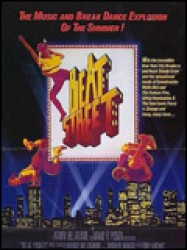
Beat Street (1984)
, 1h45Réalisé par Stan Lathan
Origine Etats-Unis
Genres Drame, Musical
Thèmes Danse, La musique, Le hip-hop, Musique
Acteurs Rae Dawn Chong, Robert Taylor, Saundra Santiago, Guy Davis, Antonia Rey, Mary Alice
Rôle Dancing instructor
Note65%





Un petit groupe de jeunes habitants du Bronx veulent percer dans le monde du hip-hop. Kenny est un DJ prometteur, son petit frère Lee est un excellent breakdancer, Ramon est graffeur et Charlie s'est donné une place de manager pour Kenny.
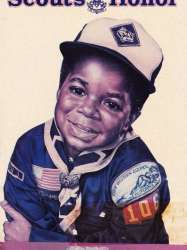
Scout's Honor (1980)
, 1h40Réalisé par Henry Levin
Origine Etats-Unis
Genres Drame, Comédie
Acteurs Gary Coleman, Katherine Helmond, Pat O'Brien, Wilfrid Hyde-White, Harry Morgan, Eric Taslitz
Rôle Mrs. Prewett
Note59%





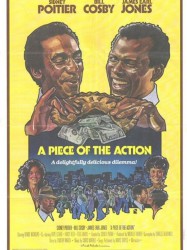
Un morceau de l'action (1977)
, 2h15Réalisé par Sidney Poitier
Origine Etats-Unis
Genres Thriller, Comédie, Policier
Thèmes Buddy movie, Hold up
Acteurs Bill Cosby, Sidney Poitier, James Earl Jones, Denise Nicholas, Hope Clarke, Tracy Reed
Rôle Sarah Thomas
Note63%





Dave Anderson et Manny Durrell sont deux voleurs sournoises de grande classe qui n'a jamais été pris. Joshua Burke est un détective à la retraite qui a suffisamment de preuves sur la deux d'entre eux pour les mettre derrière les barreaux. Au lieu de cela, il propose de maintenir son silence si les escrocs vont aller tout droit et ne travailler à un centre de jeunesse pour les délinquants. Dans un premier temps, les escrocs sont réticents et ne voulant pas (et sont donc les enfants). Comme le temps passe, ils gagnent la confiance et l'admiration des enfants et ils commencent à apprécier le travail. Tout va bien jusqu'à ce que quelqu'un du passé leur dit qu'ils ont à faire un dernier hold-up .
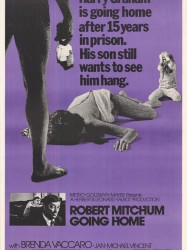
L'Affrontement (1971)
, 1h33Réalisé par Herbert Breiter Leonard
Origine Etats-Unis
Genres Drame
Acteurs Robert Mitchum, Brenda Vaccaro, Jan-Michael Vincent, Jason Bernard, Sally Kirkland, Josh Mostel
Rôle Mother at Prison
Note59%





La relation conflictuelle entre un fils tout juste sorti de l'adolescence et son père libéré de prison, incarcéré pour le meurtre de la mère du jeune garçon des années auparavant.
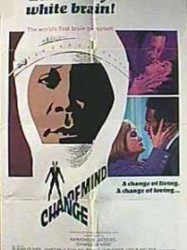
La peau de l'Autre (1969)
, 1h38Origine Etats-Unis
Genres Drame, Science-fiction
Thèmes Le racisme
Acteurs Raymond St. Jacques, Susan Oliver, Leslie Nielsen, Janet MacLachlan, Donnelly Rhodes, David Bailey
Rôle Nancy
Note61%





David Rowe est un procureur atteint d'un cancer avancé. Pour survivre, il doit suivre une opération révolutionnaire qui greffera son cerveau dans le corps d'un autre homme. Alors que Rowe est un homme blanc, son nouveau corps est celui d'un homme noir. Ses relations avec ses proches et le public vont s'en trouver définitivement changées. Pendant ce temps, un procès délicat l'attend.
 Connexion
Connexion

